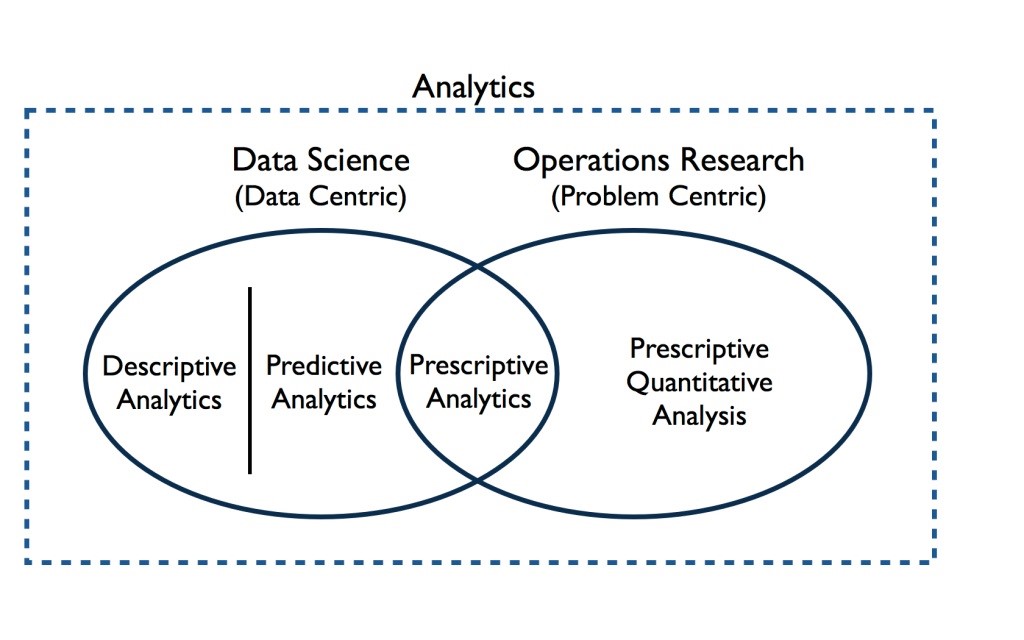Operations research is an experimental and applied science devoted to observing, understanding, and predicting the behaviour of purposeful man-machine systems; and operations-research workers are actively engaged in applying this knowledge to practical problems in business, government, and society. – OR Society of America

Most of the students in our education system might wonder whether they will ever use the mathematics which they learn from the studied courses. Students frequently asked a core question, such as, is any of the analysis, algebra, calculus, combinatorics, math programming, etc. really going to be of value in our daily life?
One exciting area of applied mathematics called Operations Research (OR) may give the answer of the above question. OR integrates the knowledge of numerous disciplines, like mathematics, statistics, computer science, engineering, economics, and social sciences to solve real-world problems. The notion of OR is applied from inventory to manufacturing; finance to marketing; routing to queuing; distribution to scheduling; data storage management to service measurement and reliability to artificial intelligence; agriculture to defence and among others using innovative and mathematical theories (analysis, algebra, calculus, probability, etc).
OR can be defined as the decision-making science. It is also known as Operational Research or Management Science or Industrial Engineering. There is no general process in OR to solve all the mathematical models related to real-world problems. One of the most prominent methods is linear programming which is useful to design a model with linear objective function and constraints. The techniques for solving linear programming problem (LPP) was developed by George Dantzig in the early 1950s and this is led to increasing interest of OR applications in business.
More than Mathematics:
Since the OR models are mathematical nature, people think that an OR study is always rooted in mathematical observations. But an OR technique should not be biased to start with a specific mathematical model before its proper justification of use (H.A.Taha, Operations research; an introduction, Pearson Education). For an example, since linear programming is a successful process, people tend to use it as the tool of choice for modelling any kind of situations. Such an approach leads to mathematical model which may be take away from real situation. Thus, it is imperative that we first analyse the available data using simple processes whenever possible (e.g., aggregation, histograms, charts, etc.). Actually, most of the cases solutions are rooted in people but not in technology. Consequently, any solution that does not consider human behaviour may not be an appropriate solution.
OR with software library: There are numerous commercial software packages to solve the OR models. A few examples of such software are LINGO, AMPL, CPLEX Optimization Studio, MPL Modeling System, Gurobi. NEOS, COIN-OR, Matlab, R, Mathematica and Python, etc.
Scope of OR: OR has wide range applications in industry, government sectors, business hubs and many other organisations. Some important fields are:
- In industry-manufacturing (production planning, assembly line, inventory control, quality control), production management (location and size of warehouse, retails outlet, logistics, transportation problem), airline industry, health-care systems, telecommunications, etc.
- In Agriculture– Farm economics (optimal allocations of crop production, efficient production pattern), farm management (allocations of limited resources like as labour, water supply, working capital, seeds, etc).
- In Defence-Selection of weapon system against enemy, ensuring minimum use of aviation gasoline, optimal strategy to win the battle.
- In Marketing-Selection of product-mix, export planning, advertising and media selection, travelling salesman, sales effort allocation and assignment.
- In Finance and accounting– Investment and portfolio management, public accounting, capital budgeting, financial planning
- In personnel management– allocation of optimal manpower, determination of equitable salaries, skill development and retention.
- In Government-Urban and housing problems, military, energy, economic planning, utilization of natural resources.
Job prospects: There are plenty of jobs after completion of specific programme with OR. Few of them are
- Operations Research Analyst
- Project Manager
- Teaching Assistant
- Research Assistant
- Consultant
- Software Engineer
- Security Review Operations Analyst
- Production manager
- Optimal designer
- Controller of network routing, transportation
Covid-19 impact:
From the last two years, Covid-19 pandemic has disrupted all our lives, causing havoc to our health-care systems, education sectors, industries and especially economical systems. As with the early days of OR, presently multi-disciplinary and multi-locational teams of OR scientists have responded to the challenge, developing new models and methods for forecasting and tracing the spread of the epidemic, for vaccine allocation and distribution, etc. as part of the global effort to control the pandemic. (Janny Leung, IFORS News, Vol 17, No. 1, 2022).
Recently, Bueno et al. (Luís Felipe Bueno, Antonio Augusto Chaves , Luiz Leduino Salles-Neto, Francisco Nogueira Calmon Sobral, Horacio Hideki Yanasse, IFORS News, Vol 17, No. 1, 2022) developed a web app for helping managements to plan classrooms considering social distancing by using mixed-integer and nonlinear optimization approaches.
Why should be in course curriculum:
OR successfully provides a systematic and scientific approach to all kinds of service operations, defence, manufacturing, government. It is a splendid area for under graduate and post graduate students of mathematics to use their knowledge and skills to solve complex real-world problems in creative ways. It has an impact on them to take critical decisions. Numerous companies in industry require OR analysts to apply mathematical techniques to a wide range of challenging questions in the said domain.



